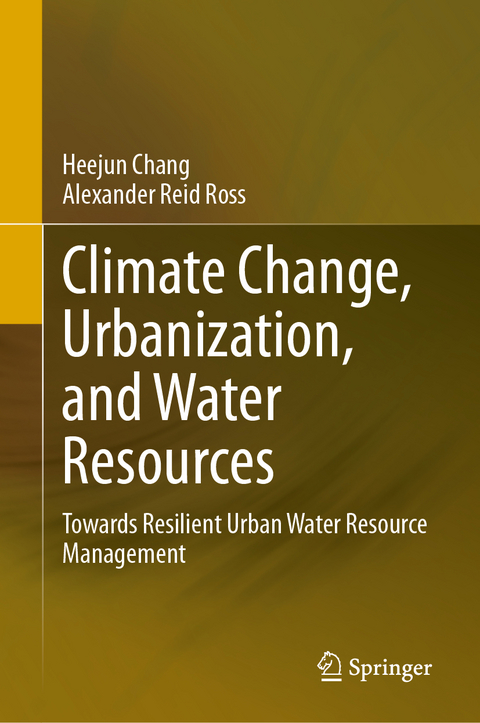
Climate Change, Urbanization, and Water Resources
Springer International Publishing (Verlag)
978-3-031-49629-5 (ISBN)
This book discusses resilient urban water resources management in the context of climate change and ongoing urbanization. Twelve cities worldwide representing different climates and growth stages serve as case studies. Using these case cities, this book first identifies the main water issues, including water demand, floods, and droughts, in relation to the historical development of each city, investigates current strategies for dealing with climate-related water hazards, and explores potential adaptive strategies. The authors draw some common lessons by comparing and contrasting these case studies while acknowledging place-based unique adaptation strategies.
lt;p>Heejun Chang is a Professor of Geography at the Portland State University. As a broadly trained geographer and hydrologist, he has conducted transdisciplinary freshwater research using a coupled human and natural systems lens. In collaboration with diverse scholars and interdisciplinary water researchers, he has investigated the combined impacts of climate change and urbanization on runoff, water quality, water demand, and water-related ecosystem services across scales. Chang uses diverse data and methods to understand human and water interactions using process-based models, surveys, interviews, document analysis, and geospatial analysis. Chang's high-impact societally relevant geographic research makes him a worthy recipient of the American Association of Geographer's E. Willard and Ruby S. Miller Award in 2022.
Alexander Reid Ross is a Senior Instructor at the Portland State University where he teaches courses on water, climate change, and sustainability. His research and reporting explores the multi-scalar dynamics of conflict and consensus using transdisciplinary approaches involving historical, information, and political geographies, as well as social ecology. In the area of complex, coupled human-water systems, his work covers collaborative governance and adaptation to climate change-induced hazards in exurban places using mixed quantitative and qualitative methods, and his analysis of the dual theoretical frameworks, socio-hydrology and hydrosocial theory won the International Association of Hydrological Scientists' Tison Award in 2022.
1. Introduction.- 2. Seoul, Republic of Korea.- 3. Jakarta, Indonesia.- 4. Istanbul, Turkey.- 5. Newcastle, United Kingdom.- 6. Barcelona, Spain.- 7. Lagos, Nigeria.- 8. Cape Town, South Africa.- 9. Melbourne, Australia.- 10. São Paulo, Brazil.- 11. Mexico City, Mexico.- 12. Houston, United States of America.- 13. Portland, United States of America.- 14. Conclusions.
| Erscheinungsdatum | 16.02.2024 |
|---|---|
| Zusatzinfo | X, 196 p. 1 illus. |
| Verlagsort | Cham |
| Sprache | englisch |
| Maße | 155 x 235 mm |
| Gewicht | 468 g |
| Themenwelt | Naturwissenschaften ► Biologie ► Ökologie / Naturschutz |
| Naturwissenschaften ► Geowissenschaften ► Geografie / Kartografie | |
| Naturwissenschaften ► Geowissenschaften ► Geologie | |
| Schlagworte | climate change • Droughts • floods • natural disasters • Resilient water management • Socio-economic, ecological and infrastructure stresses • Water management and urbanization • water resources |
| ISBN-10 | 3-031-49629-9 / 3031496299 |
| ISBN-13 | 978-3-031-49629-5 / 9783031496295 |
| Zustand | Neuware |
| Haben Sie eine Frage zum Produkt? |
aus dem Bereich


